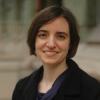A little more than 100 years ago, Sigmund Freud presented a lecture to his colleagues on the "The Aetiology of Hysteria." It was to be his magnum opus, his great contribution to the budding field of psychology. Instead, this lecture on his discovery of the origins of hysteria was not met with the warm reception he expected and Freud found himself uncomfortable with his own theories. In a year's time, Freud questioned his findings that had revealed an uncomfortable truth: the mysterious disease of hysteria from which so many women suffered may not have been the result of an illness, but symptoms of childhood sexual abuse.
Judith Herman, a well-known psychiatrist on trauma, has written that Freud's skepticism about the widespread nature of abuse eventually led him to disavow his research. Later, Freud hypothesized that the women's stories and revelations of abuse were not based in fact, but rather, fantasies of their own desire for one or another parent. Freud eventually abandoned his earlier research into sexual abuse and turned instead to other work.
Today we find the same skepticism regarding childhood abuse among most members of the church hierarchy and some Catholics who do not want to face the horrors of sexual abuse and other atrocities that have been committed against children in our faith communities. We hear the stories. We read the statistics. And we turn away. It is too painful.
Yet what happened to Freud could be a lesson for our church today. After largely ignoring childhood sexual abuse, now the field of psychology not only recognizes the unfortunate widespread nature of such abuse, but has taken immense strides to help survivors heal. How much farther into the field of abuse psychology would be today -- and how much better we would be as a society -- if, in 1896, Freud had believed in the women he was studying and continued to research how the field of psychology could address childhood sexual abuse and other issues they faced.
The church today finds itself standing in the same predicament as Freud. Each day it seems another story of sexual abuse or its cover-up surfaces in the news. We, like Freud, have the choice to believe and act on the news, to become a church of healing and justice, or to turn our backs.
Last weekend, at the annual national conference sponsored by Survivors Network of those Abused by Priests, or SNAP, Anne Barrett Doyle from BishopAccountability.org said that the much-touted national figure for priests credibly accused of the sexual abuse of a child is 4 percent, but that number isn't correct. She noted that the church's latest figures put that number at 5.3 percent. Furthermore, in dioceses with broader disclosure requirements for credibly-accused priests, that number rises to 9-10 percent. And those statistics only reflect the cases where survivors have come forward. The true percentage is likely far higher.
And here it is again: the sacred choice to believe or not believe; to call our leaders to accountability or to turn away.
This time around, unlike Freud who turned his back on the sexual abuse survivors of his day, I pray instead that we have the courage to live up to our Christian name. I pray, for the sake of survivors and our faith communities, that we will choose to be a church of believers.
[Nicole Sotelo is the author of Women Healing from Abuse: Meditations for Finding Peace, published by Paulist Press, and coordinates www.WomenHealing.com. A graduate of Harvard Divinity School, she currently works at Call To Action.]
Editor's Note: We can send you an e-mail alert every time a Young Voices column is posted to NCRonline.org. Go to this page and follow directions: E-mail alert sign-up. If you already receive e-mail alerts from us, click on the "update my profile" button to add Young Voices to your list.




